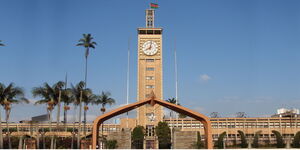The Ministry of Cooperatives has announced plans to establish specialised cooperatives to improve Miraa supply across the country.
According to Patrick Kilemi, the Principal Secretary of the State Department of Cooperatives, these new cooperatives will help the government oversee the harvesting and sale of miraa, especially during peak harvest periods and times of low profits.
Kilemi mentioned that he will meet with Miraa stakeholders in the coming weeks to introduce the initiative and discuss additional strategies to make cooperatives in the Miraa industry more effective.
"We want to deliberate with stakeholders and control the supply side of Miraa through cooperatives so that we may always regulate the production of Miraa. We have no control over demand, but we have control over the supply," Kilemi said.
"When we have the cooperatives, we will be able to monitor their production, because there is no point in everyone harvesting yet there is no market, meaning it will be a buyers' market, but we want a sellers' market," he added.
Kilemi further said that the government will also reinforce security along key Miraa transport routes, which are targeted by thieves who hijack and rob Miraa vehicles.
Miraa was declared a scheduled crop in November 2016 through an amendment to the Crops Act of 2013, which enables the government to oversee the regulation of the crop as well as promote its sale.
The product remains a key source of livelihood in several parts of the country, especially in Meru, Tharaka, Nithi, and Embu. Due to the high market demand, the cultivation of the crop has spread its roots to other counties such as Marsabit, Kirinyaga, Nyeri, Murang’a, Machakos, Makueni, Laikipia, and West Pokot.
Just a month ago, the Agriculture and Food Authority (AFA) confirmed that the government had secured Djibouti as a new export destination for Miraa.
In a statement on Wednesday, July 23, the Authority claimed that the new export market will play a pivotal role in accelerating the country's economic transformations as well as reinforcing the diplomatic ties between the two countries.
Miraa exporters were encouraged to ensure that they adhere to Djibouti's import regulations, which include having the necessary product standards as well as obtaining the necessary permits from relevant authorities.
"AFA wishes to notify the public and stakeholders of new export opportunities for Kenyan Miraa (Khat) of Djibouti, following successful trade engagements between the two nations," Linyuru said.
"As a result of a trade Mission to Djibouti in October 2024, and a reciprocal visit by a Djibouti delegation in November 2024, Djibouti has opened its market for Kenyan Miraa, subject to regulatory compliance," he added.












